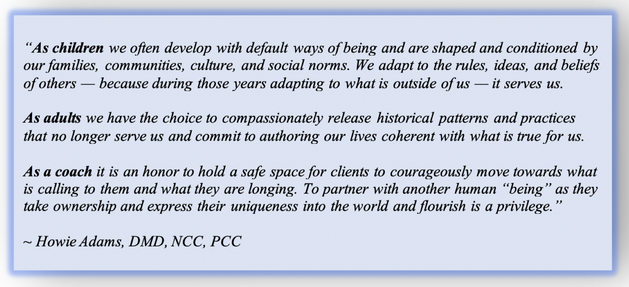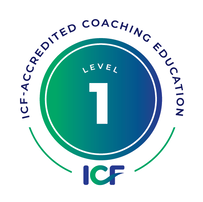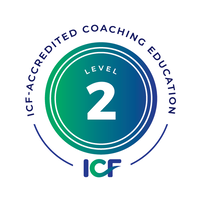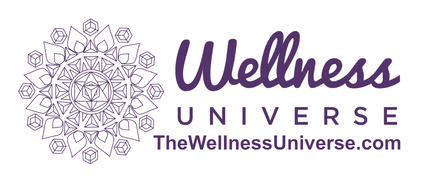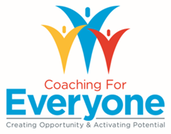The Four Key Considerations
for Therapists Moving into Coaching
Below are four key perspectives to consider when transitioning from a therapy approach into a coaching approach.
Considering adding self-actualization methods to your therapy approach or shifting entirely into a purely coaching model?
Below we review the top four key perspectives to consider when thinking about transitioning into the coaching field.
Below we review the top four key perspectives to consider when thinking about transitioning into the coaching field.
A New Foundation
The first thing to consider is the challenge of transistioning. Having a background in diagnosis and treatment of emotional and mental medical conditions can be an asset in coaching. However, it can also be a significant hinderance and challenge.
It is an asset because you will be able to know if a client needs therapy instead of coaching. It becomes a hinderance if you desire to guide the client’s process.
Coaches do not give advice or direct a client’s process. In coaching, the client is completely in the driver’s seat at all times.
The foundations of each approach are different. Therapists guide a client back to health, directly or indirectly. Coaches use self-actualization frameworks and the Socratic method to help a client build a new future.
Here is why…
Human potential is a journey. On the first stretch of this journey, we can be shown the way. This guidance can be found in books, mentoring, advising, counseling, or anytime we need to look to others for the answers that guide us.
Yet, there is a time in our life when the answers provided to us become the very box of our limitation. In this moment, we realize we are at a crossroads; to continue the way we've been shown or to pave our life through our own truth.
To truly reach our human potential, one must journey beyond the walls of external provision and begin to journey for answers within.
As a coach, we are the lantern to the client's essence, the seeds of potential within, aching to be born. We are the Sherpas journeying with our clients to their unique personal apex.
The second stretch of this journey can only be accessed from going within to explore the depths of wisdom embedded within each human heart. To masterfully coach, we must show up as a completely neutral vessel to hold undisrupted space for the client’s unfolding.
What is their truth? What is their wisdom? What jewels are buried within their heart? What gifts are hidden within?
In masterful coaching, we must sit in the unknowing to be of service to their knowing.
Sitting in unknowing, switching to a completely neutral foundation, and not guiding the client’s process can be a challenge for therapists new to coaching.
If a coaching approach is something that resonates with you, then we teach you how to translate your experience, insights, and hard-earned wisdom as a therapist into powerful questions and coaching frameworks. We help you take the client much farther into their own work.
It is an asset because you will be able to know if a client needs therapy instead of coaching. It becomes a hinderance if you desire to guide the client’s process.
Coaches do not give advice or direct a client’s process. In coaching, the client is completely in the driver’s seat at all times.
The foundations of each approach are different. Therapists guide a client back to health, directly or indirectly. Coaches use self-actualization frameworks and the Socratic method to help a client build a new future.
Here is why…
Human potential is a journey. On the first stretch of this journey, we can be shown the way. This guidance can be found in books, mentoring, advising, counseling, or anytime we need to look to others for the answers that guide us.
Yet, there is a time in our life when the answers provided to us become the very box of our limitation. In this moment, we realize we are at a crossroads; to continue the way we've been shown or to pave our life through our own truth.
To truly reach our human potential, one must journey beyond the walls of external provision and begin to journey for answers within.
As a coach, we are the lantern to the client's essence, the seeds of potential within, aching to be born. We are the Sherpas journeying with our clients to their unique personal apex.
The second stretch of this journey can only be accessed from going within to explore the depths of wisdom embedded within each human heart. To masterfully coach, we must show up as a completely neutral vessel to hold undisrupted space for the client’s unfolding.
What is their truth? What is their wisdom? What jewels are buried within their heart? What gifts are hidden within?
In masterful coaching, we must sit in the unknowing to be of service to their knowing.
Sitting in unknowing, switching to a completely neutral foundation, and not guiding the client’s process can be a challenge for therapists new to coaching.
If a coaching approach is something that resonates with you, then we teach you how to translate your experience, insights, and hard-earned wisdom as a therapist into powerful questions and coaching frameworks. We help you take the client much farther into their own work.
Skill Transference
In coaching, we do not give advice. We do not direct or guide the client’s answers. Those roles are found in advising, consulting, and medical practices.
A well-trained coach is powerful at helping a person not only find themselves, but create themselves.
Although coaching is a unique discipline, there are some skills that naturally transfer.
These include empathy, observation and reflection.
Empathy – Therapists already understand the power of empathy and how to connect with people in their emotion without joining them in their story. Empathy is a powerful skill we use in coaching.
In Integrative Coaching, we use a self-communication framework to invite presence with emotions and connect them with underlying motivations. This approach draws a clear line between coaching and therapy as it honors the client’s wisdom and ownership.
Observation & Reflection – Therapists tend to be more naturally skilled at noticing and reflecting back. Therapists also tend to have good BS meters. These skills transfer to parts of the coaching process.
In coaching, all reflection and observations of words, language, patterns, and somatic shifts are used in service of the client’s self-awareness, truth and ownership of interpretation.
We help therapists translate current skills into powerful coaching approaches.
A well-trained coach is powerful at helping a person not only find themselves, but create themselves.
Although coaching is a unique discipline, there are some skills that naturally transfer.
These include empathy, observation and reflection.
Empathy – Therapists already understand the power of empathy and how to connect with people in their emotion without joining them in their story. Empathy is a powerful skill we use in coaching.
In Integrative Coaching, we use a self-communication framework to invite presence with emotions and connect them with underlying motivations. This approach draws a clear line between coaching and therapy as it honors the client’s wisdom and ownership.
Observation & Reflection – Therapists tend to be more naturally skilled at noticing and reflecting back. Therapists also tend to have good BS meters. These skills transfer to parts of the coaching process.
In coaching, all reflection and observations of words, language, patterns, and somatic shifts are used in service of the client’s self-awareness, truth and ownership of interpretation.
We help therapists translate current skills into powerful coaching approaches.
A Positive Psychology
Dr. Ana Melikian, a psychologist who transitioned into full-time coaching, states that "therapy is focused on getting the client from a -10 to 0 through diagnosis and treatment. Whereas coaching helps clients get from 0 to +10 in their life."
This difference is fairly significant and requires a different approach, skill set and knowledge base.
Coaching is the positive psychology of self-actualization and Integrative Intelligence®. Yes, we may help a client in stress, but we do so by inviting them into the future, locating their own wisdom, and examining their life through their Highest Self first.
The psychologists and therapists that come to IICT’s Integrative Coach Training are ready to empower people, but from the other half of the spectrum, the self-actualization side of human experience.
In our society, we have lost many traditions, and self-actualization is a choice. Many people feel called to something greater. This is where the coach comes in… when something greater within a person is ready to awaken.
In therapy, we help people pull themselves out of the weeds. In coaching, we help them plant new seeds. If you are considering transitioning into coaching, then you want to consider if this lines up with how you want to operate.
This difference is fairly significant and requires a different approach, skill set and knowledge base.
Coaching is the positive psychology of self-actualization and Integrative Intelligence®. Yes, we may help a client in stress, but we do so by inviting them into the future, locating their own wisdom, and examining their life through their Highest Self first.
The psychologists and therapists that come to IICT’s Integrative Coach Training are ready to empower people, but from the other half of the spectrum, the self-actualization side of human experience.
In our society, we have lost many traditions, and self-actualization is a choice. Many people feel called to something greater. This is where the coach comes in… when something greater within a person is ready to awaken.
In therapy, we help people pull themselves out of the weeds. In coaching, we help them plant new seeds. If you are considering transitioning into coaching, then you want to consider if this lines up with how you want to operate.
Old & New Credentials
We receive inquiries stating, “I am transitioning into coaching and plan to let my license go. I already have two degrees, I don’t need any more credentials. I already know how to help people, so I just need business-building help.” Or, “I already have multiple degrees. Do I really need training to call myself a coach? Someone told me I could just call myself a coach and start coaching.”
There are a few considerations here.
Not many people know that coaching is a unique discipline. While a few skills transfer as we outlined above, the coaching process is completely unique. The foundation of coaching, where the client is the guide in the entire process, is the opposite of therapy where the therapist is guiding the client towards a healthier direction.
Coaching is a peer-regulated industry. It is low liability when delivered properly because the client guides their own process. Coaching is therefore not governed by state or federal licensing agencies. Legally speaking anyone can call themselves a "coach" without having proper training. However, this can become a liability issue. For example, those that switch to the title of coach and are still practicing therapy under a false title have been subject to liability.
We highly recommend ICF accredited coach training to ensure you are properly trained in the key differentiators and processes involved in professional coaching. We advise against using the title without any proper training.
The question is: How much training do you need and desire? We have three options.
There are a few considerations here.
Not many people know that coaching is a unique discipline. While a few skills transfer as we outlined above, the coaching process is completely unique. The foundation of coaching, where the client is the guide in the entire process, is the opposite of therapy where the therapist is guiding the client towards a healthier direction.
Coaching is a peer-regulated industry. It is low liability when delivered properly because the client guides their own process. Coaching is therefore not governed by state or federal licensing agencies. Legally speaking anyone can call themselves a "coach" without having proper training. However, this can become a liability issue. For example, those that switch to the title of coach and are still practicing therapy under a false title have been subject to liability.
We highly recommend ICF accredited coach training to ensure you are properly trained in the key differentiators and processes involved in professional coaching. We advise against using the title without any proper training.
The question is: How much training do you need and desire? We have three options.
Options to Consider
We help psychologists and therapists transition into coaching by bridging self-actualization frameworks with your current expertise. We also clearly delineate the lines between coaching, consulting and therapy.
We would love to help you determine if we're the right school for you. Please feel free to reach out and schedule time to speak with our Dean of Students, Lauren Stidham to learn more about our unique process.
We would love to help you determine if we're the right school for you. Please feel free to reach out and schedule time to speak with our Dean of Students, Lauren Stidham to learn more about our unique process.
|
|
Article: Addressing Mental Health With Integrative Intelligence
By Laurel Elders, MCC, CEC
When you hear the term "mental illness," what comes to mind? I notice feelings of shame and worry come up for me. I struggled with anxiety and depression inter-changeably throughout my teens and early adulthood. I've seen how mental illness can carry a stigma in our culture, and I believe the reason for that is worth unearthing. >>CLICK HERE FOR FULL ARTICLE<< |


